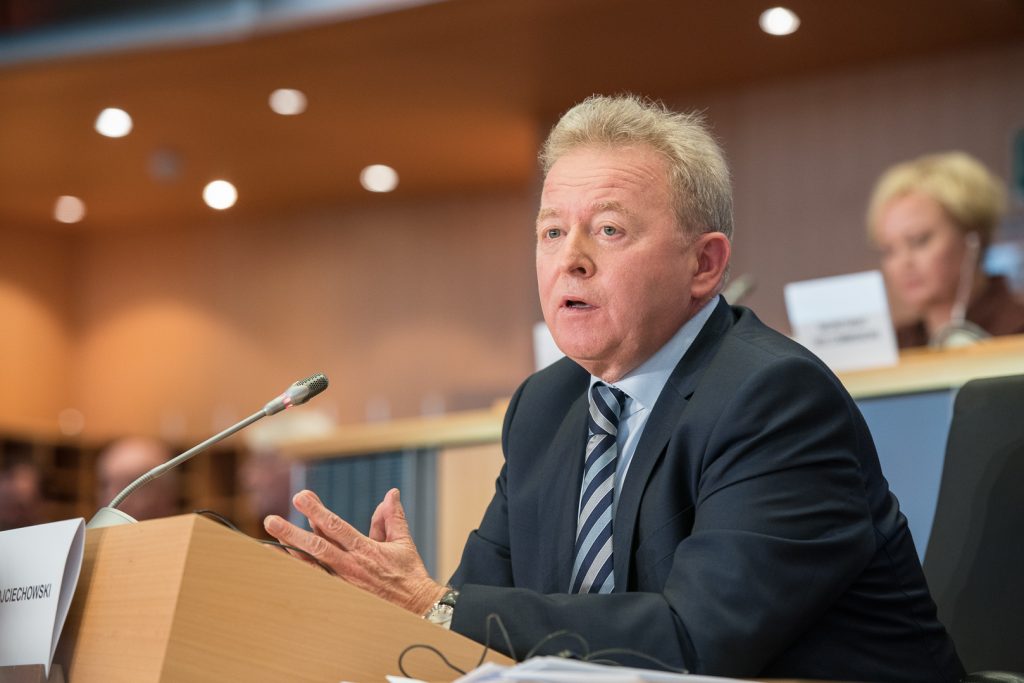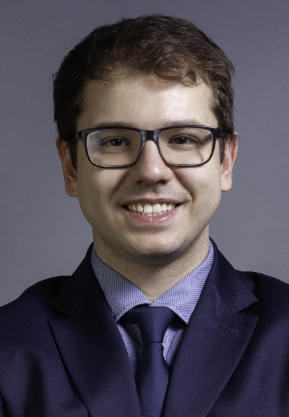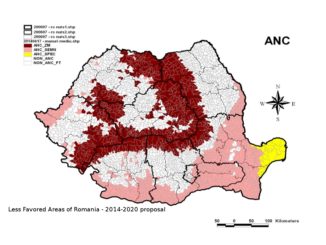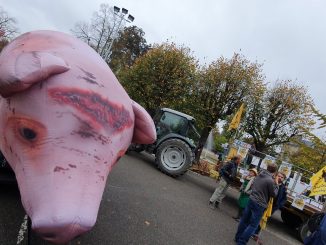
By Igor Olech
Poland’s choice for Agriculture Commissioner Janusz Wojciechowski’s had a tough hearing on 1st October – so tough, he’s had to answer written questions and may have to appear again on Monday. Then he may be subject to a secret ballot of the 48 MEPs who make up the Agri Committee. So who is Janusz Wojciechowski, what might he focus on, and what is the Polish impression of the MEP from the Euroskeptic ECR group? With new correspondent Igor Olech.
The first hearing of Polish candidate for Agricultural Commissioner, Janusz Wojciechowski (01.09) was not satisfying for the hearing commission. Wojciechowski is from the Polish Law and Justice Party (PiS) in power in Poland and sometimes clashing with the EU over the rule of law. PiS are part of the ECR group (European Conservatives and Reformists) a right wing, Euroskeptic populist group with 62 MEPs. This makes it smaller than the Greens and larger than the left-wing GUE.
Wojciechowski’s performance has been widely described as being far too general and lacking in details. Most of the Parliament’s groups seemed unhappy with him, so he has had to answer written questions for close of business Friday 4th October, with full translations available by noon on Monday 7th October. On Monday, 15.00 Agriculture Committee coordinators will meet to consider his answers. If they have a negative assessment, a short hearing of 90 minutes will take take place at 18:30. Ag MEPS will then assess and, if necessary vote by secret ballot on the Tuesday 7th.
Exclusive – see here for the written questions Written Questions for Wojciechowski
Depending on the outcome of this, “Poland may have to to swap its candidate“.
Wojciechowski spoke on critical decrease of farmers in EU, support of ecological, animal-friendly farms and improvement of animal rights – e.g. feed produced locally and “not imported from USA or South America”. This is not very surprising as Wojciechowski for years has been a vice-chain of Animal Welfare Intergroup. He suggested also more intensive engagement of small farmers instead of large landowners in II Pillar payments, what can be linked in his claim of focusing on more environmentally friendly, multifunctional agriculture. Wojciechowski’s unsatisfying performance has been pointed out by MEPs questioning him- but also by politicians and journalists from his homeland. Below we present opinions on his Tuesday performance.
Let us start with Wojciechowski’s political opponents. Kosiniak-Kamysz, leader of Wojciechowski’s previous party PSL1, was critical of Wojciechowski’s performance during the hearing, but also stated PSL’s support for his candidacy, saying “[w]e give a chance, as always; if there are Poles, then we want to support them in the most important positions.” Similar feelings expressed former PSL and current MEP Jarosław Kalinowski. Piotr Zgorzelski (PSL) said that if Wojciechowski “won’t pass this trial, it will be an embarrassment”. (…) “Janusz Wojciechowski could not even answer a simple question, it was one big blame. It turns out that in Law and Justice there is a very short bench of people responsible for agriculture” continued Kalinowski. Halicki (PO) “If the candidate is weak, he won’t be effective”. Biedroń (Wiosna) “It’s a lost chance. I myself declared previously that (he) is a candidate with merit. I don’t know what happened”. Piotr Apel (Kukiz’15, on PSL lists) said in an interview for public radio Trójka that “many experts have foreseen previously that the first candidate for the commissioner will be rejected just to show Poland that you do not do certain things in the EU, and seems to be more of a showcase“. He added, that despite of having many objections to Wojciechowski’s candidature (as e.g. his previous support to the trade agreement with Mercosur states), these are the least important and political climate in Brussels in more relevant. He finished with an opinion that “the bench of potential candidates from PiS is short, therefore it would be better to keep the current candidate”.
However Zbigniew Kuźmiuk spoke positively on Wojciechowski’s hearing. Kuźmiuk left PSL with Wojciechowski in 2006, applauding the idea of creating CAP strategy (similar to energy strategy) and audit of CAP within the first 100 days of his candidacy. Marcin Ociepa, secretary of state in the Ministry of Entrepreneurship and Technology, claimed that the decision was “conditioned politically” and that “there are some total forces in the EU which do not accept that someone can disagree with them”. He added that PiS is ready for “all possibilities”, also for proposing another candidate. Michał Dworczyk, head of Chancellery of the Prime Minister of Poland, said in similar tone that there are “forces for which PiS government is salt in the eye” and that there are some Polish MEPs who are willing to sacrifice Polish interests for their own gains. Prof. Zdzisław Krasnodębski, MEP from PiS party, commented on Wojciechowski’s performance that he “increased his chance for becoming the commissioner, but answers for some questions were too general” and that “maybe that it was fault of his advisors, who did not want to antagonize anyone” and that he needed a stronger vision.
Oskar Górzyński, a journalist of one of the largest Polish news platforms, has written mostly critically about Wojciechowski’s performance, but also appreciated the “green face” of PiS. The same observation had a journalist in an interview with MEP Krasnodębski. Gazeta Wyborcza also reported, that avoidance of clear answers could have been consciously chosen tactic in order not to antagonize any factions. In interview proceeding the hearing, for Polish Radio Z and TVN, Wojciechowski commented on his speech that he has answered “as precise as he could” in a situation where much of the groundwork is already done and in motion.
Portal Wirtualna Polska has carried out an opinion poll asking a question “Do you think that Janusz Wojciechowski is a good candidate for Agricultural Commissioner in European Commission?”
Most of the questioned answered “I don’t know” (60%), followed by “Yes” (27%) and “No” (13%), with PiS voters answering predominantly “Yes” (44% to 3%), while voters of the largest opposition party, PO, were quite evenly distributed between positive (25%) and negative (24%). While asked a question “Do you think that Janusz Wojciechowski will pass the procedure and will become an Agricultural Commissioner in European Commission?” 54% said “I don’t know”, while 29% said “Yes” and 17% said “No”.
Overall, it can be said, that both allies and opponents of Wojciechowski were somewhat surprised with his poor performance, as most consider him reasonably well briefed on CAP. His decision to speak in English, and not use the interpretation facilities available was criticised by many. Others claimed that rough treatment of the candidate could have also political reasons, being a rebuke to the euroskepticism of both Poland’s Law and Justice (PiS) party and the ECR (European Conservatives and Reformists Group), of which PiS are a member. Others again pointed out that PiS simply might not have many more good candidates. Some unofficial sources claim that Wojciechowski’s candidature has been already rejected as “nothing could be done anymore” with it, but if we will see him giving follow up questions, we will find out only the next week. The final vote will take place on 23rd of October.
Who is Wojciechowski and what might he focus on?
What could be expected from Wojciechowski is possibly more emphasis on problems of the “new” member states. After Commissioner Dacian Ciolos, Wojciechowski would be the second commissioner from Central and Eastern European Countries countries.
Wojciechowski voiced several times his opinion on equalizing payments between “new” and “old” member states, especially that according to Polish accession agreement with EU, full external convergence of payments should have been reached a decade after accession. The decade has passed on 1st of May 2014, which was already more than five years ago. External convergence is the main point of discord between Polish farmers and CAP regulations. Popular opinion in Poland is that in order to have free market in EU, there should be equalized payments so the competition would be fair. At the same time, Wojciechowski claimed that his answers were general due to the upcoming MFF (Multiannual Finacial Framework) being still unfinished. This coudl inhibit external convergence.
We could also expect action on recent problems, as African Swine Flu and support for farmers who suffered from it, possibly seeking new export routes for farmers who lost their export destination since the embargo on trade with Russia – e.g. apple producers – and compensations to farmers who suffered from droughts. We could expect more complex action regarding water management and irrigation systems. Another problem, which plagues Central and Eastern European states since the beginning of transformation of 1990s – and which has been raised by Wojciechowski in Europarliament – is the dominance of foreign retailers (regarding miss-labelling or dictating prices of the purchase, even below production costs) in their relations with domestic farmers. Currently in Poland it is one of the reasons for slowly, but consequently, growing populist tendencies among farmers : the introduction of laws protecting agricultural producers from retailer, but also processor, pressures could help to curb this.
Last but not least Wojciechowski is an author of multiple interpelations regarding humane treatment of animals. EU so far is considered a global leader regarding the animal treatment. Wojciechowski can be expected to continually improve this field. Mahatma Ghandi’s quote that “[t]he greatness of a nation and its moral progress can be judged by the way in which its animals are treated” has been mentioned by Wojciehowski in Europarliament several times. If chosen, Wojciechowski could push those boundaries further.
Wojciechowski in the European Parliament
In his online autobiography he listed a number of professional successes in judicial (e.g. no judgements annulled and complaints against him when he was a judge, 10 comments to the penal code, former member of National Council of the Judiciary), scientific (several hundred scientific and journalistic articles on legal and socio-legal issues) and political career. On 1st of July 2004 he joined the Committee on Agriculture and Rural Development, and only a week later he has been voted for the vice-chair of AgriCom. He signed a multiple written declarations (an instrument which no longer exists) and debating points on such topics relevant for agriculture and farmers as GMO2, animal welfare3 (pets and stray animals too, as he was also a vice-chair of Animal Welfare Intergroup), product labelling4, external convergence5, protection of agricultural producers6, bioethics7, Russian embargo8 and African Swine Flu, which currently plagues some eastern parts of EU.
 Igor Tomasz Olech is currently writing a Masters thesis on agricultural policy paradigms in Poland at Humboldt University in Berlin. He teaches on agricultural policy in EU (CAP) and globally (WTO).
Igor Tomasz Olech is currently writing a Masters thesis on agricultural policy paradigms in Poland at Humboldt University in Berlin. He teaches on agricultural policy in EU (CAP) and globally (WTO).
Notes
1 Wojciechowski hac ceased to be a member of PSL in 2006. According to Wojciechowski, he has been removed for questioning the manner in which the former Warsaw headquarter of PSL was sold, while according to PSL politicians he was removed, with two other MEPs, for changing his party from PSL’s EPP to ECR without informing the party leadership. All three MEPs first formed PSL “Piast”, later on joining PiS.
2 On genetically modified food, seeds and fodder and Possibility for the Member States to restrict or prohibit the cultivation of GMOs (debate)
3 On a time limit of 8 hours for the transport of live animal, On the implementation of the ban on individual sow stalls by 1 January 2013, A new animal welfare strategy for 2016-2020 (debate), Trade in seal products (debate), Animal Health (debate) and Introduction of compatible systems for the registration of pet animals across Member States (debate)
4 On labelling of meat and poultry products from ritually slaughtered animals and Country of origin labelling for meat ingredients in processed food (debate)
5 On equal treatment for farmers in the European Union and On the equitable distribution of agricultural subsidies between the new and old Member States
6 Price crisis in Europe’s pig meat sector (debate), Ptents and plant breeders rights (debate), Ongoing crisis in the agriculture sector (debate) and On investigating and remedying the abuse of power by large supermarkets operating in the European Union
7 Cloning of animals kept and reproduced for farming purposes (debate)





